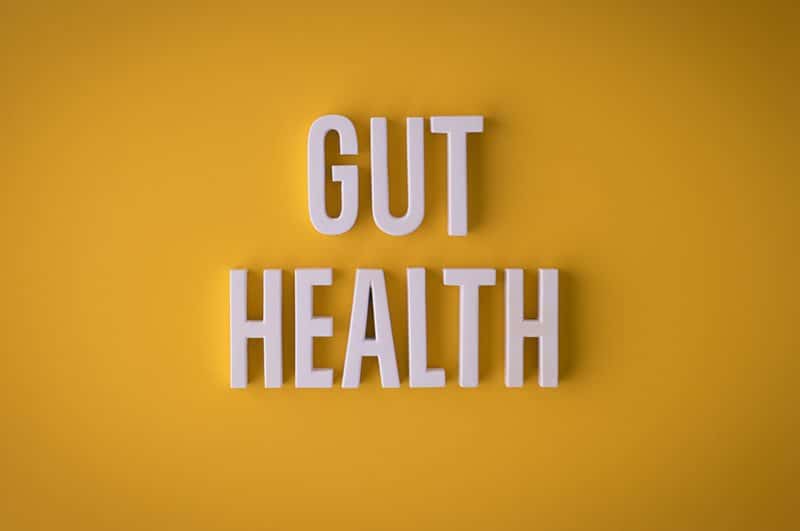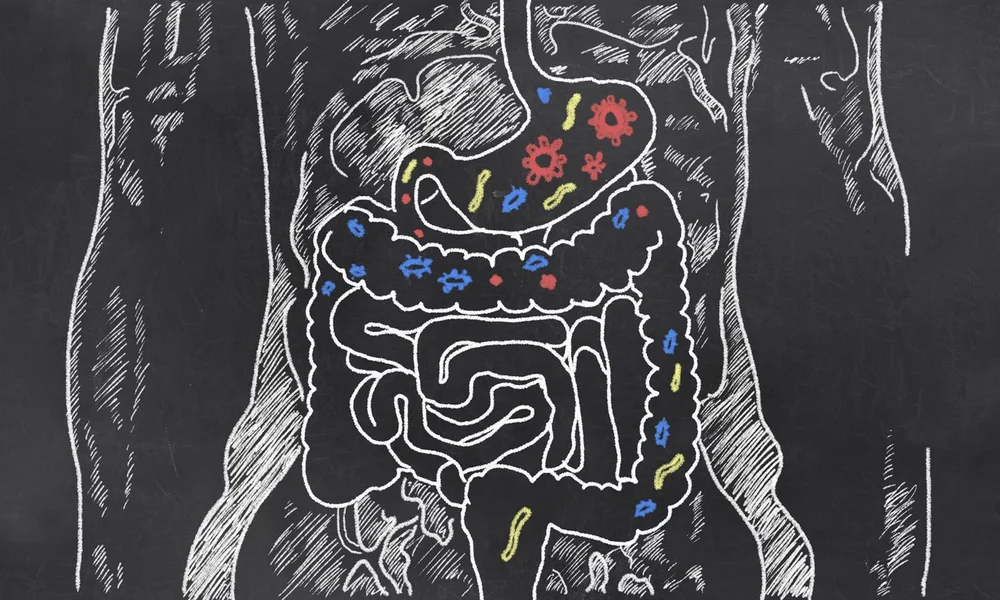10 Things About Probiotics For Gut and Brain Health
10 Things About Probiotics For Gut and Brain Health
Our gastrointestinal (GI) tract or “gut” houses a diverse population of bacteria (along with some viruses and fungi) that are friendly to us: we give them food and shelter and they help us run our life processes. In ecology, this is called symbiosis – both sides helping each other.
At the level of the individual human body, there are numerous symbiotic bacterial communities associated with its various “microecologic” zones. The gut bacterial community is the best understood and is technically called the “gut microbiome.” I’ve been closely following this research since the late 80s, and here are 10 things you need to know about it:
-
The Gut Microbiome: Diverse, Balanced, Essential for Health
The healthy gut (from mouth through to rectum) altogether carries at least 160 out of a possible 1000 different bacterial species. And bacteria are so changeable that the species have subcategories called strains. Each strain has its own genetic profile, its own enzyme profile, and its own environmental preferences such as acid-alkali level, oxygen level, where it attaches, what it feeds on, and so on. Each person has their own individual gut bacteria strain profile, operating in mutual cooperation with their more complicated tissue cells for the body’s greater good.
If we take good care of our gut bacteria by taking good care of our whole body, they can have a good balance, with the majority of the strains being positive for our health. If we do bad things to our body, they (like our tissue cells) can be pushed out of balance so that unfavorable strains come to dominate. As the balance worsens, unless we take steps to clean up our act, even the dreaded Candida fungus or parasitic protozoa can increase in numbers and create a major problem. Managing your gut bacterial balance is a little like managing a fast-growing garden.
-
Good Gut Bacteria Sustain Health In Numerous Ways
Good gut bacterial balance has a great variety of benefits. Some of these are:
- Supporting healthy digestion and intestinal motility for bowel regularity.
- Helping neutralize potentially toxic substances that reach the gut.
- Generating butyrate, vitamin K and other nutrients that nourish the body.
- Supporting the structure of the one cell-thick intestinal lining. Maintaining this tight seal helps ensure against “leaky gut,” to keep undigested food molecules and other inappropriate junk from reaching the bloodstream and causing damage to the tissues.
- Helping program healthy immunity from birth onwards.
- Positively influencing intestinal antioxidant defenses.
- Competing against and “crowding out” disease-causing bacteria, fungi or protozoa.
-
Diet Can Help Or Hurt The Gut Bacterial Balance
The foods that we eat and supplements we take to influence our bacterial friends for good or bad. Junk foods can change the microbial balance in a bad direction. High sugar intake can bias the balance in favor of Candida. In contrast, early human societies discovered they could benefit more from certain foods if they fermented them first. Certain of the bacteria traditionally used in food fermentation is closely related to good bacteria that reside in the gut, and by eating those foods you can bias the balance in favor of these good bacteria. It’s possible to improve your microbiome balance by consuming well-defined fermented foods low in sugar.
-
Dietary Fiber “Prebiotics” Help Sustain Your Gut Bacteria
Fiber is the component of food that’s not digestible, usually some form of complex carbohydrate. The favorable gut bacteria love certain fibers. Among the best-proven prebiotics are inulin, fructo-oligosaccharides (FOS), and galacto-oligosaccharides (GOS). Usually, it takes at least several grams a day of a prebiotic to make the difference, so it’s hard to get benefit from prebiotic supplements as capsules or tablets. Powders are best.

-
Lifestyle and Stress Also Affect Gut Balance
Our gut bacteria are vulnerable to assault, most notoriously by antibiotics. But the emotional stress, negative lifestyle factors such as smoking or drinking or other addictions, overweight or obesity, and environmental pollutants all take their toll and deplete the friendly gut bacteria. Having any or all of these factors in your life, or simply having a lack of bowel comfort and regularity, are good reasons to take a probiotic supplement. Physical exercise does reliably improve gut balance.
-
Probiotic Supplements Need Clinical Testing To Prove Their Worth
The World Health Organization in 2001 defined probiotics as “live microorganisms that, when administered in adequate amounts, confer a health benefit on the host.” In the intervening decades, clinical research on probiotics has exploded. However, most commercially available probiotic supplements aren’t adequately documented for health benefits. Those that aren’t clinically researched may not help at all. As you research probiotic supplements it’s crucial that you ask, “Does this product have clinical trials?”
-
Probiotic Benefits Extend Beyond the Gut
To prove its health benefit a probiotic supplement needs to be put through a controlled clinical trial, performed on the very same strains in the very same ratio as present in the supplement, because even good bacteria can compete or interfere with each other. Certain strain combinations have been found to improve immune, intestinal, liver, lung, and skin health, as well as healthy glucose metabolism and healthy inflammatory balance. Science-based probiotic supplements have been found to benefit practically every organ system, including the brain.
-
With Probiotics, Size May Or May Not Matter
Currently, many probiotic retailers are telling consumers that the more strains there are in a product, and the higher their counts, the better they’ll work. But more strains and higher counts don’t mean a thing unless the combination has been shown to actually have benefit in at least one well designed clinical trial. In fact, the vast majority of the hundreds of good gut bacteria found in healthy people still can’t be cultured out of the body for commercial application.
-
The Exciting New Field of Psychobiotics
The gut bacterial community can communicate with the brain and vice versa. This two-way communication is now called “the gut-brain axis.” There’s good evidence that a healthy balance of gut bacteria can stimulate immune cells in the gut lining, and probably also nerve cells, to convey messages to the brain. In turn, the brain can dispatch regulatory signals that further improve their living environment – symbiosis in practice, “you help me, and I’ll help you.” Some friendly bacteria even can produce neurotransmitters identical to some made in the brain.
Scientists’ recognition of the gut-brain axis has led to a “paradigm shift” in brain science, which now gives the gut microbiome central importance in regulating brain functions. This paradigm also ushered in psychobiotics—probiotic strains that have shown brain benefits in clinical trials.
-
Clinical Validation of the First Psychobiotic
The earliest solid support for a psychobiotic came from a 2008 double-blind, placebo-controlled clinical trial. It involved 72 volunteers aged 18 to 60 years, documented as suffering from stress, including gut discomfort. In the trial, a specific combination of Lactobacillus helveticus Strain R0052 and Bifidobacterium longum Strain R0175 taken daily for three weeks improved their nausea, vomiting, and abdominal pain compared to the placebo.
Then came another double-blind, placebo-controlled clinical trial with this very same probiotic strain combination, published in 2011. A total of 55 volunteers aged 30 to 60 years, reporting stress and anxiety, received the probiotic or a placebo for 30 days. The probiotic improved their mood, anxiousness, anger, and hostility. These two trials with the identical combination of two probiotic strains established their psychobiotic credentials, as they improved both mental and the physical challenges of coping with stress.
The BrainMD team used the precise probiotic combination that was validated in these two clinical trials to make a psychobiotic BrainMD supplement, which we named ProBrainBiotics. We used the identical strains, at the identical potencies used in the two double-blind clinical trials, obtained from the same supplier. This is the best-documented probiotic supplement for helping the brain while also helping the gut. As we continue to follow the exciting developments around probiotics for the brain we’ll be sure to keep you posted.
Key Scientific References
- Mayer EA, others. Gut microbes and the brain: a paradigm shift in neuroscience. The Journal of Neuroscience 34:15490 (2014).
- Diop L, others. Probiotic food supplement reduces stress-induced gastrointestinal symptoms in volunteers: a double-blind, placebo-controlled, randomized trial. Nutrition Research 28:1 (2008).
- Messaoudi M, others. Assessment of psychotropic properties of a probiotic formulation (Lactobacillus helveticus R0052 and Bifidobacterium longum R0175) in rats and human subjects. British Journal of Nutrition 105:755 (2011).
- Messaoudi M, others. Beneficial psychological effects of a probiotic formulation (Lactobacillus helveticus R0052 and Bifidobacterium longum R0175) in healthy human volunteers. Gut Microbes 2:256 (2011).
- How Can Ginkgo Biloba Promote a Better Memory? - July 8, 2019
- Are You Getting the Best Nutrients in Your Multi-vitamin?, Part 2 - July 3, 2019
- Are You Getting the Best Nutrients in Your Multi-vitamin?, Part 1 - June 24, 2019




What type of food and in what amount do we need to eat to get prebiotics and probiotics?
Drink Kefir which you can culture with grains bought from a reputable source…such as Kefir Lady, Ohio.
Kefir is far superior to yogurt, has greater concentration of probiotics and remains within the gut system longer.
I make my own with skim milk and one glass of soy milk which helps to grow the cultures quicker.
Do not waste money on yogurt; spend wisely and buy Kefir Grains and culture your own milk.